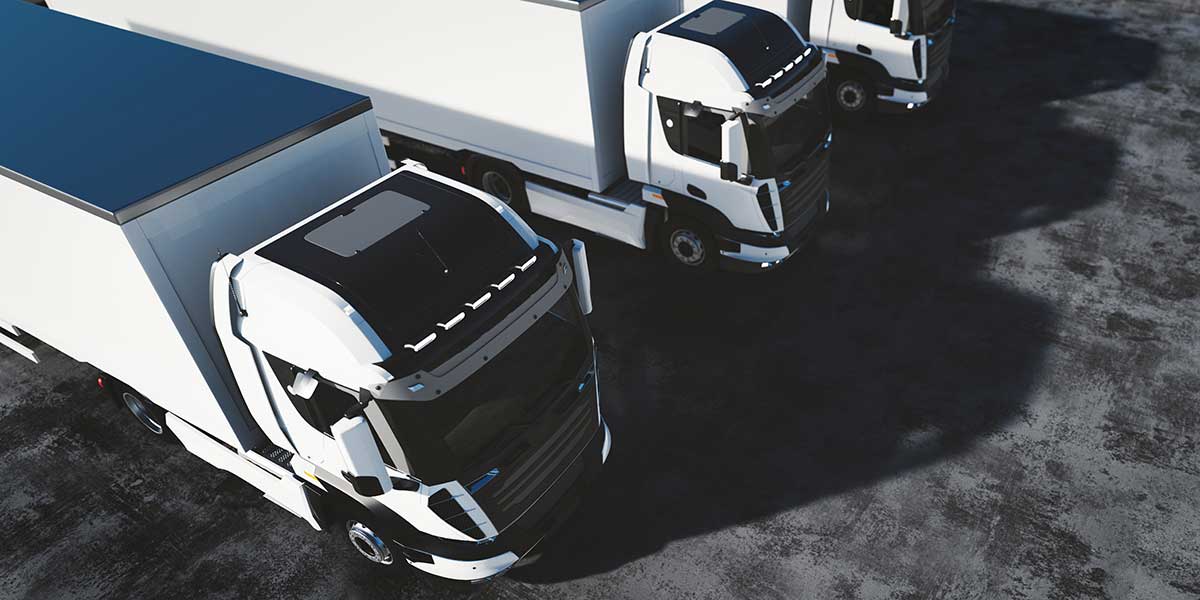What You Need To Know About the FMCSA and Autonomous Trucks

As fleet operators consider the future of the trucking industry and what changes technology will bring, autonomous trucking regulations are at the top of the list. FMCSA autonomous truck regulations are on the way, and understanding any new federal exemptions will require significant planning.
Learn about safety standards and compliance suggestions regarding autonomous vehicles that are under consideration.
Federal Legislative Possibilities Regarding Autonomous Trucks
Autonomous trucks are going to greatly alter the way commercial vehicle operations companies run. They’re also going to change the role of federal transportation industry oversight from the Federal Motor Carrier Safety Administration (FMCSA).
Congressional legislative changes will guide the FMCSA as it sets rules and regulations for how autonomous trucks operate and the roles of drivers.
One of the first pieces of federal legislation aimed at the FMCSA and autonomous trucks is the AMERICA DRIVES Act, which seeks to have FMCSA regulations in place when autonomous trucks are ready for widespread deployment. Some of the areas the AMERICA DRIVES Act addresses include the following.
Defining Fully Autonomous Trucks
The act would establish federal definitions for autonomous trucks, thereby simplifying operations for fleets operating in multiple states. The bill would define who qualifies as a remote driver and how remote assistance works.
The bill would eliminate confusing rules that differ from state to state for self-driving and driverless trucks.
Exemptions for Trucks Using Self-Driving Features
One area of the act would potentially exempt autonomous trucks from the same regulations and requirements for human drivers. For example, the autonomous trucks would not have to adhere to hours of service limits or drug testing requirements that human drivers must follow.
However, these exemptions would only apply to fully autonomous trucks.
Reliance on SAE Guidance
Many of the regulations and requirements in the bill would rely on guidance from the Society of Automotive Engineers (SAE). For the federal regulations, the SAE would define ADS levels of technology, using those to determine when human drivers would need to be in the truck. The FMCSA would also rely on the SAE to define the role of remote drivers and when to use them.
What May Happen From a Legislative Perspective
Regarding the AMERICA DRIVES Act and how it affects the FMCSA and autonomous trucks, it’s important to note that this is only the first step. The act represents early legislation that’s likely to undergo several changes before potential enactment. Other bills may come up for consideration that emphasize other areas.
In a press release, the sponsor of the AMERICA DRIVES Act says the primary focus of the bill is to address truck driver shortages. Other legislators might introduce bills that focus on safety features or give the FMCSA more autonomy with less SAE oversight.
What the FMCSA May Emphasize With Autonomous Trucks
Regardless of what kind of legislation ultimately guides the FMCSA as it sets autonomous trucking regulations, the technology is on the horizon. Trucking businesses will need a plan in place for ensuring their autonomous fleets remain in FMCSA compliance.
CSA Scores Will Probably Remain
Industry insiders predict that things like the FMCSA’s Compliance, Safety, and Accountability (CSA) scores will not disappear with autonomous vehicles. Instead, the emphasis will shift away from human drivers to maintenance teams. Companies will need to have processes in place that guarantee the safe operation of autonomous trucks.
Managing Data From the Trucks
Autonomous trucks will generate several times more operational data than today’s trucks with human drivers. The FMCSA may require companies to provide certain portions of this data for safety and performance monitoring.
Safety Will Remain the Primary Concern
The FMCSA exists to promote the safe operation of trucks, and that is not going to change with autonomous trucks. The FMCSA might require trucking companies to help with educating the public about the safety of autonomous trucks by providing data or even sponsoring demonstrations.
FMCA Filings Helps You Remain in Compliance With Changing Regulations
Although FMCSA regulations are constantly evolving, few things will cause changes as rapidly as the introduction of autonomous vehicles. Potential new regulations would potentially change hours of service rules or drug testing requirements. Understanding the potential rules regarding compliance with the FMCSA and autonomous trucks can be difficult when trying to create a long-range business plan.
At FMCA Filings, we take the guesswork out of the process, giving you valuable information for your daily operations. We help you remain in compliance and let you focus on running your fleet. To learn more about how we can help, live chat with our representatives.